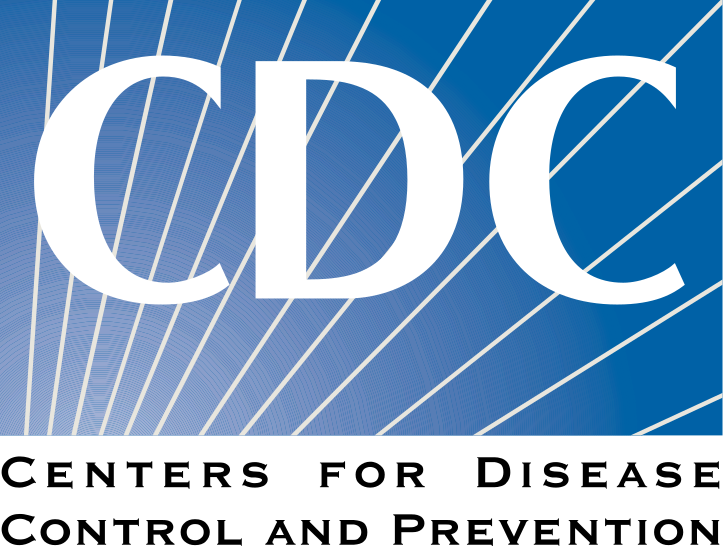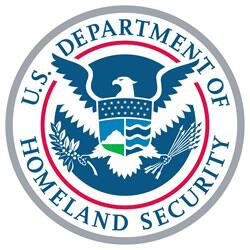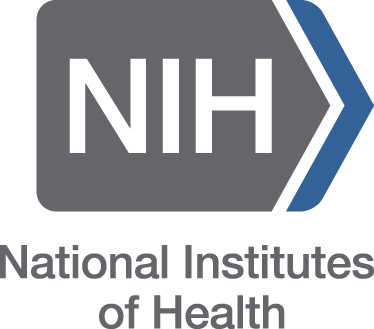You are on CGS' Legacy Site.
Thank you for visiting CGS! You are currently using CGS' legacy site, which is no longer supported. For up-to-date information, including publications purchasing and meeting information, please visit cgsnet.org.
Newsroom
In the newsroom, stay informed about the Council's activities with frequent updates and press coverage.
Students seeking to transfer to graduate schools could be at an even bigger disadvantage compared to regular applicants and other transfers. That being said, Suzanne T. Ortega, president of the Council of Graduate Schools, told Teen Vogue it’s “hard to imagine that any graduate school isn’t going to take the current circumstances into consideration when assessing future graduate applications.”
CGS is providing information, networks, and a resource hub for member institutions as they work to support their students throughout the COVID-19 pandemic. A list of CGS resources for navigating the pandemic can be seen below. New resources and opportunities to connect with your colleagues and CGS leadership will be added, so check this page frequently.
- The Graduate Community’s Response to COVID-19: A Conversation with Graduate Deans
- President Suzanne Ortega’s Office Hours
- Dean’s Discussion Board
- April 15 Resolution
Institutional Initiatives and Examples
CGS members have responded to the COVID-19 by creating new resources and initiatives to support graduate students. Click here for a list of CGS member initiatives and examples submitted by the graduate education community.
Federal Regulatory and Legislative Updates for Institutional Operations
The linked page includes resources and summaries on federal legislative and regulatory actions related to COVID-19 as well as CGS-supported requests to Congress and the Administration.
- Department of Education page on COVID-19
- UPDATED Guidance for interruptions of study related to Coronavirus (COVID-19) (May 15, 2020) provides information that expands on the Department's March 5, 2020 and April 3, 2020 guidance.
- UPDATED Additional Learning Information: Department’s final rules for Distance Learning and Innovation.
- Office for Civil Rights posts Questions and Answers for Postsecondary Institutions Regarding the COVID-19 National Emergency including technical assistance for postsecondary institutions in meeting Federal civil rights laws.
- UPDATED Department of Education publishes third FAQ guidance on the CARES Act Higher Education Emergency Relief Fund
- Office of Postsecondary Education publishes revised public reporting requirements for Higher Education Emergency Financial Aid Grants to Students.
- Centers for Disease Control and Prevention provides updated guidance and communication resources for Colleges and Universities to Plan, Prepare, and Respond to the coronavirus disease.
- UPDATED Centers of Disease Control and Prevention guidance on Testing, Screening, and Outbreak Response for Institutions of Higher Education
- White House Office of Management and Budget issued a memo allowing federal funding agencies, including NIH, to provide continued flexibilities to research grant recipients impacted by COVID-19. The flexibilities allow grant money to cover operational and salary costs.
- White House issues precautions for all individuals, including those on college campuses.
International Students
International graduate students are among those most affected by the COVID-19 pandemic. From issues with standardized testing to visas, the situation for international graduate students is continually evolving. Below is a list of resources to support international students as they navigate these challenging times:
- NAFSA covers who is and is not affected by the Trump Administration's April 22, 2020 proclamation limiting certain immigrants from entering the United States during the designated 60 day period. The original White House proclamation can be found here
- NAFSA maintains a hub of news and information on education abroad, international students and scholars, and regulatory information.
- Educational Testing Service (click here for GRE and here for TOEFL), Cambridge English, IELTS maintain web pages with updates to information for international English and GRE test takers.
- Department of Homeland Security provides FAQs for SEVP Stakeholders about the effects of COVID-19 and any additional SEVP adaptations in response to the pandemic for SEVP-certified schools and F and M students.
- USCIS updated Public Charge information to encourage all individuals, including immigrants seeking green card status, with symptoms that resemble COVID-19 to seek necessary medical treatment or preventive services. Such treatment or services will not negatively affect one’s future Public Charge analysis.
- Congressional Research Service published a report, Recovery Rebates and Unemployment Compensation under the CARES Act: Immigration-Related Eligibility Criteria
- U.S. Citizens and Immigration Services (USCIS) Response to Coronavirus (COVID-19)
Financial Aid
Graduate student financial support remains a top priority for CGS and its members. Below is a list of resources on graduate student financial aid.
- IRS published FAQs: Higher Education Emergency Relief Fund and Emergency Financial Aid Grants under the CARES Act covering how higher education institutions are to use Education Department funds to support students and institutions with expenses and financial needs related to the coronavirus pandemic.
- Century Foundation outlines how students can leverage the CARES Act Pandemic Unemployment Assistance through the Department of Labor summarizing how PUA differs from the traditional unemployment assistance program, what benefits are available, and which students qualify.
- Department of Education’s Office of Postsecondary Education clarifies Higher Education Emergency Relief Fund Reporting- Emergency Financial Aid Grants to Students, the information institutions must report on their use of HEERF grants as mandated in the CARES Act.
- UPDATED Department of Education’s Office of Federal Student Aid provides updated Coronavirus and Forbearance Info for Students, Borrowers, and Parents including Q&A on student loan payments, loan increases, distance learning, and agency and federal government responses.
- Department of Education’s Office of Postsecondary Education clarifies Higher Education Emergency Relief Fund Reporting- Emergency Financial Aid Grants to Students, the information institutions must report on their use of HEERF grants as mandated in the CARES Act.
- Department of Education guidance on the CARES Act: Higher Education Emergency Relief Fund. Federal Register posted the interim final rule on 6/17/20. Comments close 7/17/20.
- COVID-19 Title IV Frequently Asked Questions
- Frequently Asked Questions about the Institutional Portion of the Higher Education Emergency Relief Fund
- Frequently Asked Questions about the Emergency Financial Aid Grants to Students
- Department of Labor posted a press release on the Pandemic Unemployment Assistance program.
- National Association of Student Financial Aid Administrators (NASFAA) maintains information related to COVID-19 on their Today’s News page.
- Department of Education reopens the application period for institutions to apply for aid through the Higher Education Emergency Relief Fund (HEERF) through September 30.
- Department of Labor published a news release answering questions about eligibility for paid leave and Pandemic Unemployment Assistance.
Funding Opportunities
Research opportunities are of key importance to CGS and its members. Compiled below are resources on grant funding for federal and COVID-19 related research grants.
- National Institutes of Health provides information for NIH Applicants and Recipients of NIH Funding.
- National Endowment of the Humanities awards $40.3 million in new CARES Act grants to support operations and preserve jobs at museums, archives, historic sites, and colleges and universities across the U.S. A complete list of all 317 new NEH CARES grants is available here.
- A coalition of arts grantmakers launched Artist Relief, unrestricted grants to help artists in need of financial support due to COVID-19.
- National Science Foundation is accepting proposals to conduct non-medical, non-clinical-care research that can be used to understand the spread of COVID-19.
- National Endowment for the Humanities announced new grant guidelines designed to rapidly distribute CARES Act funding to cultural nonprofits affected by the coronavirus pandemic.
- National Science Foundation announced the Impact on Existing Deadline Dates and extends deadline dates for the solicitations or Dear Colleague Letters (DCLs).
- Institute of Museum and Library Services announced New Stimulus Funding for Communities Across America to award the first $30 million of $50 million appropriated to the agency in the CARES Act. The grants will be distributed to all 50 states, the District of Columbia, the U.S. territories, and the Freely Associated States based on population.
- Council on Governmental Relations created FAQs and Resources on COVID-19's Impact to Federal Awards and continues to update a host of resources.
- Department of Education announces Formula Grants to Outlying Areas from the Education Stabilization Fund through the CARES Act for use in response to coronavirus. Outlying Areas of the United States refers to the US Virgin Islands (VI), Guam (GU), the Commonwealth of the Northern Mariana Islands (CNMI), and American Samoa (AS).
State-level Information and Resources
- National Conference of State Legislatures: NCSL Coronavirus (COVID-19) Resources for States, including education.
Tax
- NACUBO offers COVID-19 Employer and Tax Resources summarizing tax credits and deferral programs, SBA low-interest loans for small employers including Payroll Protection Program (PPP) loans, and other tax relief including options for international students.
Suzanne Ortega, president of the Council of Graduate Schools, said that many graduate programs admit students conditional on their achieving certain scores on the TOEFL or an equivalent exam. Those exams aren't available now in China and elsewhere, so graduate schools are working on other ways to evaluate students' English ability.
This page is designed to provide information on COVID-19 that may be relevant to your graduate programs and students. As this public health situation evolves, CGS may begin adding links to CGS member resources and communications.
April 15 Statement
Federal Agency Guidance (please note these are subject to updates/changes)
Centers for Disease Control and Prevention (CDC):

Interim Guidance for Administrators of US Institutions of Higher Education
Department of Homeland Security:

COVID-19: Guidance for SEVP Stakeholders
USCIS Temporarily Suspends Routine In-Person Services
Department of Education:

COVID-19 ("Coronavirus") Information and Resources for Schools and School Personnel
National Science Foundation:
.png)
Interim Guidance for Travel, Merit Review Panels, and NSF-Sponsored Meetings
RAPID Research on Coronavirus (COVID-19)
NSF Supporting Research to Address Coronavirus Disease blog
National Institutes of Health:

University Responses
- APLU offers general guidance as well as a list of responses from its member institutions to the virus.
Additional Resources on International Issues
- NAFSA maintains a hub of news and information on education abroad, international students and scholars, and regulatory information.
- Educational Testing Service (click here for GRE and here for TOEFL), Cambridge English, IELTS maintain web pages with updates to information for international English and GRE test takers.
Additional Resources on Student Financial Aid Issues
- National Association of Student Financial Aid Administrators (NASFAA) maintains information related to COVID-19 on their Today’s News page.
CGS COVID-19 Legislative and Regulatory Updates
This resource hub includes resources on federal legislative and regulatory actions related to COVID-19, in addition to highlighting letters CGS has signed requesting specific actions to Congress and the Administration.
- Summary of higher education and research provisions in the CARES Act
- Table of individual legislative proposals to address COVID-19
To submit a resource for consideration, please email Matthew Linton.
Although data released by the Council of Graduate Schools (CGS) this month shows increased graduate applications and enrollments at U.S. universities for the first time since fall 2016, the Graduate Management Admissions Council’s (GMAC) most recent application trends report documents a steep 13.7% decline in international applications to American business programs from 2018 to 2019.
FOR IMMEDIATE RELEASE
Contact: Katherine Hazelrigg (202) 461-3888 / khazelrigg@cgs.nche.edu
Washington, DC — Today the Council of Graduate Schools (CGS) announced a partnership with the University of Maryland’s PERVADE: Pervasive Data Ethics to identify ways to enhance and influence the training graduate students receive when using big data methods in their research. The project, which will convene thought leaders from the big data ethics community and graduate deans from research-intensive institutions, has received funding support from the U.S. Department of Health & Human Services Office of Research Integrity (ORI) and Elsevier.
An increasing number of research disciplines and industry leaders embrace big data approaches as they pursue important research questions and product development. However, the methods used to assemble large datasets, and their applications in decision-making contexts, challenge existing ethical paradigms for data management, data integrity, human subject protections, and data use. Unfortunately, current attempts to identify and address these challenges are often focused within specific disciplines or corporate settings and offer little opportunity to integrate these evolving ethical concerns within master’s and doctoral programs.
“Graduate deans often oversee professional development and Responsible Conduct of Research (RCR) training curricula and are uniquely positioned to present the ethical concerns of big data research to their university communities and to bridge potential silos that impede the sharing of best practices to address these evolving challenges,” said CGS President Suzanne T. Ortega.
CGS has long been interested in scholarly integrity in graduate education, including training graduate students in the ethical use of big data. The CGS 2015 Global Summit (“Implications of ‘Big Data’ for Graduate Education”) brought together policy experts from 15 countries to discuss the implications of big data in research but did not develop specific strategies to train graduate students in the ethical issues arising from its use to study human behaviors and activities. The 1.5-day workshop, which will take place in June 2020, will address a critical gap in our training of graduate students and future researchers: understanding the unique ethical challenges of data ownership and data management within the context of big data research.
Workshop goals include identifying specific ethical challenges that arise from the use of big data resources in graduate student research, critiquing existing resources for training, identifying potential levers for change, and formulating strategies for deploying and embedding resources for big data ethics within the RCR training curriculum. This conversation will empower graduate deans to expand our current training paradigms for scholarly integrity to address the evolving ethical challenges presented by big data.
# # #
About CGS
The Council of Graduate Schools (CGS) is an organization of approximately 500 institutions of higher education in the United States and Canada engaged in graduate education, research, and the preparation of candidates for advanced degrees. The organization’s mission is to improve and advance graduate education, which it accomplishes through advocacy in the federal policy arena, research, and the development and dissemination of best practices.
International graduate application and first-time enrollment rates have increased at U.S. universities for the first time since fall 2016, reported the Council of Graduate Schools (CGS).
After two consecutive years of declines in international graduate student applications and first-time enrollments, U.S. institutions reported increases in both categories for 2019. That’s the key takeaway from a just-released survey of American graduate schools conducted by the Council of Graduate Schools (CGS).
First-time enrollments of international students at U.S. graduate schools increased by 4 percent in fall 2019 compared to the previous fall, according to new survey results from the Council of Graduate Schools. Applications from prospective international graduate students also increased by 3 percent.
FOR IMMEDIATE RELEASE
Contact: Katherine Hazelrigg (202) 461-3888 / khazelrigg@cgs.nche.edu
While overall rates are up, some universities continue to see declines
Washington, DC —The Council of Graduate Schools (CGS) has published new data showing that international graduate application and first-time enrollment rates have increased at U.S. universities for the first time since Fall 2016. For Fall 2019, the final application counts from prospective international students increased by 3%, and the first-time enrollment of international graduate students increased by 4%. The proportion of first-time international graduate enrollment in master’s and certificate programs (75%) vs. doctoral programs (25%) has remained roughly the same.
The growth is driven primarily by increases in applications (3%) and first-time enrollment (4%) to master’s and certificate programs. While the overall increases are welcome news, some institutions did not see more student interest. For Doctoral Universities with Highest Research Activity (R1) and Master’s Colleges and Universities and Other Institutions (M1-3), applications and first-time enrollment increased across the board. However, for Doctoral Universities with Higher or Moderate Research Activity (R2 & R3), first-time enrollment declined in doctoral programs (-6%) and stagnated in master’s and certificate programs (-1%).
“We are pleased to see that the overall application and first-time enrollment numbers for international graduate students are on the rise. Our member universities work hard to ensure a welcoming environment for students and scholars from across the globe,” said CGS President Suzanne Ortega. “We remain vigilant, however, in monitoring obstacles, including the latest Executive Order “travel ban” and other changes in immigration and visa policy, that may negatively impact our ability to attract talented students from around the world.”
Highlights by Country of Origin
China and India continue to represent the largest shares of international graduate applications, first-time international graduate enrollments, and total international graduate enrollments. Between Fall 2018 and Fall 2019, the number of graduate applications and first-time graduate enrollments for Chinese nationals increased by 3%.
This is the second consecutive year of strong growth in graduate applications (11%) and first-time enrollments (22%) from sub-Saharan African students to U.S. graduate schools. While after two years of decline, applications (4%) and first-time enrollments (10%) from Mexican nationals rose.
Highlights by Field of Study
Across broad fields of study, international graduate applications increased in arts and humanities (6%), health sciences (7%), mathematics and computer sciences (7%), and biological and agricultural sciences (14%) between Fall 2018 and Fall 2019. By contrast, applications in engineering (-2%) and business (-3%), two of the largest broad fields of study, decreased. The largest one-year increases in first-time international graduate enrollment by broad field of study were in mathematics and computer sciences (11%), social and behavioral sciences (11%), and biological and agricultural sciences (10%).
About the survey and report
Conducted since 2004, the CGS International Graduate Admissions Survey tracks the applications and enrollments of international students seeking U.S. master’s and doctoral degrees. As the only report of its kind to offer data on the current academic year, International Graduate Applications and Enrollment: Fall 2019 reports applications, admissions, and enrollments of international master’s, certificate, and doctoral students at U.S. colleges and universities. In Fall 2016 the survey was redesigned to collect data by degree objective (master’s and graduate certificate vs. doctorate), and for all seven regions of origin, eight countries of origin, and all eleven broad fields of study, yielding the only degree-level data currently available for graduate admissions and enrollments. 403 U.S. graduate institutions who are members of CGS or its regional affiliates responded to the 2019 survey.
###
The Council of Graduate Schools (CGS) is an organization of approximately 500 institutions of higher education in the United States and Canada engaged in graduate education, research, and the preparation of candidates for advanced degrees. The organization’s mission is to improve and advance graduate education, which it accomplishes through advocacy in the federal policy arena, research, and the development and dissemination of best practices.




